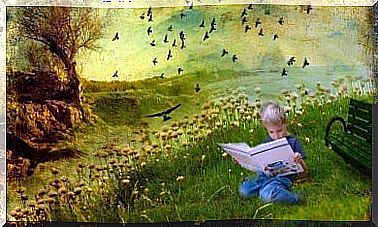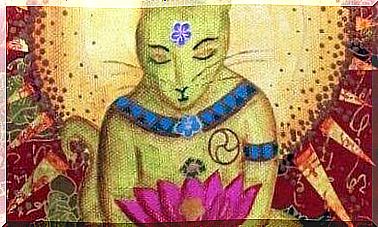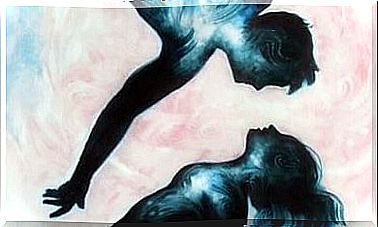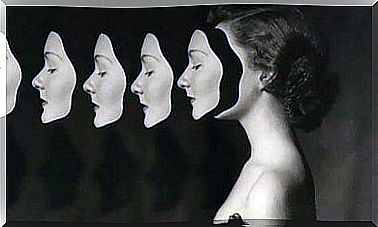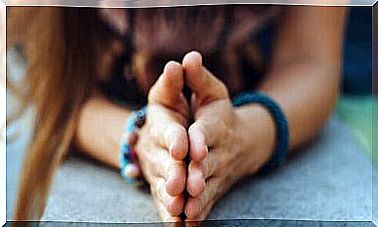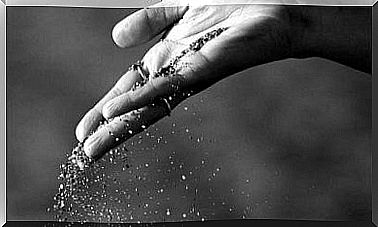The Lie For Fear Of Hurting
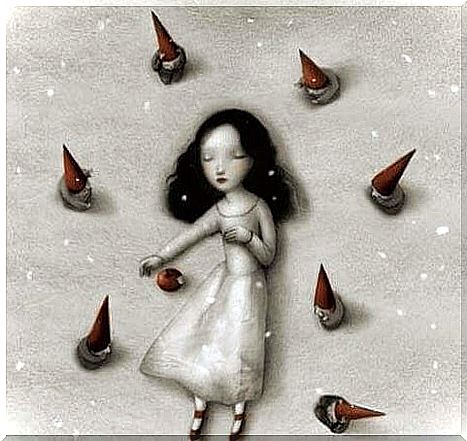
The fear of hurting is manifested through this very common phrase: “ I didn’t do or say that thing so as not to hurt you ”. We’ve all probably used it in one way or another, but what does this phrase really hide? A big lie trapped in a feeling of guilt.
How many things have we not said or done for fear of hurting another person? In fact, we don’t really know if it can hurt her and, in this way, we are not being honest with ourselves. It is a well-hidden self-deception that arises from the need to protect ourselves.
We don’t tell the truth, our communication stops being effective and authentic, we hide and conceal various information that the other person deserves and would like to know. Everything ends up having consequences, which we often don’t want to consider.
When we lie so as not to hurt, we don’t even give the other person the opportunity to choose, because we decide for them.

You are solely responsible for how you feel
You do not have the ability to make a person feel in a certain way : it is not up to you, and not even your gestures and words have that power; therefore, you cannot know how an individual will feel about it.
Only you are responsible for how you feel : the sensation is generated as a result of the interpretations you give to what you have said or done. There are many phrases that make you believe that you are responsible for what another person feels:
- “You’re making me feel guilty”;
- “You Hurt me”;
- “You hurt me with your words”;
- “Your behavior hurt me”;
- “You make me sad”.
With such phrases, we stop assuming our responsibilities and accepting the reality that those feelings, sensations and emotions are generated by us, through the interaction with others, and that they develop through our experience and our own. thoughts.
This is why not everyone will feel the same way in front of the same stimulus: everyone will have a different reaction depending on his personal characteristics and the attitude he decides to adopt.
The fear of hurting hides other fears
“I am made like this”; this is the phrase we use to justify ourselves when we believe we are truly responsible for another person’s feelings.
We think we are really afraid of hurting her and we hide behind this belief. If we are the first to believe it, we can lie indiscriminately and transform ourselves, in our minds, into saviors who prefer to tell a good lie rather than hurt someone.
In reality, what are we justifying with this behavior? Our fears and, above all, our guilt. We feel guilty and, immediately, an alarm bell rings that pushes us to hide the truth; we protect ourselves from consequences we don’t want to accept.
However, we feel guilty because we infer that the other person will hold us responsible for how they feel. We can free ourselves from this sense of guilt if we are able to accept that we are not responsible for the feelings of the other.
“If you suffer, it is because of you; if you are happy, it is because of you; if you are happy, it is because of you. No one else is responsible for how you feel, only you are. You are hell and heaven at the same time. “
(Osho)

Free yourself from your guilt
The guilt caused by your insecurity and your thoughts causes behaviors that distance you from others. You want to safeguard yourself by avoiding sincerity and clarity, so as not to face your fears.
“Of course I’ll hurt you. Of course you’ll do it to me. Of course we will. But this is the very condition of existence. Being spring means accepting the risk of winter. Being present means accepting the risk of absence “.
(The Little Prince – Antoine de Saint-Exupéry)
If you can understand, accept and assimilate the fact that you are not responsible for how the other feels, since you do not have the power to hurt him or to spare him the pain, you will be deeply in touch with yourself. You will not divert attention from what is really happening to you, which is that your fears do not allow you to see that you are avoiding a situation that causes you discomfort and discomfort.
Dealing with this situation allows you not only to get to know yourself and your fears better, but also to recover the value of honesty and to acquire the ability to accept the consequences of your actions. By doing so, you will maintain more sincere and stable relationships based on trust.
The worst thing you can do to your loved ones is not give them a chance to know the truth; they must choose the attitude with which to face the facts. You convince yourself that you are helping them but, in reality, you just want to save yourself from your fears by unknowingly increasing them.




